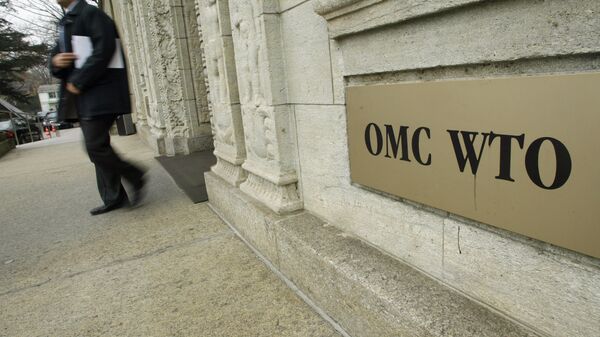Australia has said that its exports of beef and lamb have already been affected by the uncertainty of Britain leaving the EU and the distribution of the so-called ‘tariff rate quotas’ (TRQ) after Brexit is the main concern.
All up 15 countries, as well as US, New Zeland and Canada, have raised the issue during last weeks WTO Council of Goods meeting in Geneva and backed Australia’s demand for compensation.
So what’s TRQ that’s got so many countries worried?
The EU only allows a limited amount of goods, mainly farm products, to be imported at reduced or zero tariffs set under the tariff rate quotas. The current quotas are for the whole of the EU, including the UK, but Brexit means that London and Brussels have to split them which could affect market access for other nations.
“We will be quickly crowded out and face a loss of access to both markets,” the US said in a statement at Thursday’s WTO meeting.
New Zealand, in turn, has asked Britain and EU to adopt quotas “explicitly preserved for other WTO members to maintain our existing levels of access, or substantially expanded (quotas) to account for the large bilateral EU-UK trade.”
Terrence Guay, Clinical Professor of International Business at Pennsylvania State University, believes these concerns are not unfounded “because the EU may grant most of the quotas for lower tariffs to EU exporters, and the EU will do the same for UK products.”
It’s not the first time the non-EU WTO member states raised the TRQ issue and its a warning signal to the EU and UK that they are closely watching negotiations to see how quotas will be allocated, Guay noted. “They will formally file a complaint with the WTO if their interests aren’t fairly accounted for,” he stressed.
According to Heng Wang, associate professor and co-director of Herbert Smith Freehills China International Business and Economic Law Centre at the University of New South Wales, Sydney, the other problem is that the WTO is not well-adapted to deal with issues like the UK’s exit from the European Union.
“There is a tension between increased challenges like Brexit on the WTO and the limited capacity of the WTO to respond to new issues (e.g., 164 WTO members, the requirement of consensus to reach an agreement),” said Heng Wang.
The scholar also pointed out that this may lead to uncertainties in the world trading system, so “more efforts are needed to strengthen the multilateral trading system,” and if managed properly, “it will maintain a rule-based system and bring more predictability for the world.”
The multiple extensions of the Brexit deadline have also not helped resolve concerns. Britain is now set to leave the EU on 31 January 2020.



